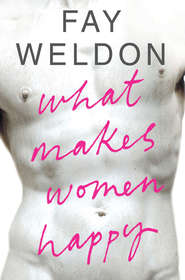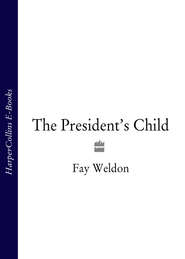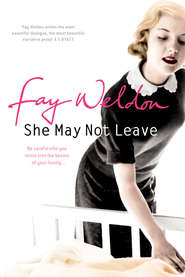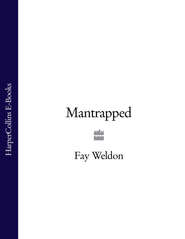По всем вопросам обращайтесь на: info@litportal.ru
(©) 2003-2024.
✖
Remember Me
Автор
Год написания книги
2018
Настройки чтения
Размер шрифта
Высота строк
Поля
Madeleine leaves the school and makes for the house where once she lived, where now her supplanter dwells. Madeleine means to make trouble. Madeleine has not been to 12 Adelaide Row for three whole years. It has been too bitter a place to contemplate, until today. See how Madeleine stretches forward with courage, common sense, acceptance? The step from depression into anger is always good!
‘Would you like your hair cut?’ enquires Lily of Hilary in the yellow and gold world of the hairdresser. ‘Or just washed? They’re very good stylists here. I’m sure short hair would suit you. It curls so prettily.’
‘Cut,’ says Hilary, with desperate courage.
Too bold!
Hilary’s hair is washed; the shampooer, a tiny, pale, exhausted child, made bitter by a daily life of insults and the detergent dermatitis on her hands, presses the back of Hilary’s neck into the rim of the basin, and does not care. Hilary says nothing. Discomfort, when inflicted by others, is best ignored. Protest achieves little, in Hilary’s experience; all it does is change practical discomfort into emotional distress, or emotional discomfort into practical difficulty.
Margot’s friend Enid, happily at work, opens a supplementary pay slip which lands in her in-tray. It contains a cheque for £543.72, a backdated pay rise. Enid is a senior civil servant in the Department of Education and Technology, although in the interests of domestic peace she tells her husband she is a secretary there. Enid has £12,583 in a building society, about which her husband knows nothing.
Enid’s husband, Sam, the estate agent, sits dismally in his office. Business is at a standstill: how will he pay the bills, keep Enid in the style to which she is accustomed? The telephone rings all the time: any number of customers want to sell their houses. But to whom? To all those others pretending to want to buy, but without the means to do so, until their own houses have been sold? For a month now not a single property has actually changed hands, although Sam has been kept busy to the point of exhaustion.
Sam’s secretary Philippa, long-legged, bends and shows her knickers. She knows she shows them. She does not care. Enid, and Sam is glad to think of it, is the kind of middle-aged industrious secretary men keep to actually get the work done: and not the kind of secretary that Philippa clearly is, which may give the organisation a good virile name, but seldom actually gets a letter into a letter box. Perhaps one day Philippa will forget her knickers; and then Sam, having privy knowledge of her, will be better able to withstand her lack of interest in him. The slut.
Hilary’s hair is cut. Snip snip snip by a bored young man, to the house style. On the floor lie the damp tresses that Madeleine took such trouble to encourage, attempting to disguise her daughter from a hostile world. Hilary’s puffy face emerges with dreadful clarity. Even the young man pauses; but style is all. Either people can carry it off or they can’t. If they can’t, they shouldn’t come here.
‘What about cutting yours, Lady Katkin,’ he asks, ‘or is it just colour today?’
‘Just colour,’ says Lily, eyeing Hilary’s hair with increasing nervousness. She is always taken aback by the products of her own malice. ‘We’ll leave the length for today.’ Lily always gives her name at the desk as Lady Katkin. Thus she is assured of quick service and good manners. Everyone else does it, anyway, she is quite sure.
I am Lily, the architect’s wife. I am a Princess by right. Didn’t my father always tell me so?
At his playgroup, Jonathon, too bold, falls off the climbing frame but is soon comforted: and climbs again, too bold, and falls again. Many children break their limbs on climbing frames, but Jonathon falls easily, and is lucky. He is young to be at playgroup but Lily pleaded his sociable nature, and the organisation were persuaded. He does not climb the frame again. He makes a puddle on the floor instead. Lily has persuaded herself that Jonathon is dry and no longer needs nappies, but Jonathon and the playgroup organisers know better. Now they put nappies on him. When Lily collects him she will take them off and find them dry. I really don’t understand them, she will complain to Jarvis.
‘Nappies? They want Jonathon to conform to their image of a two and a half year old, that’s all. Poor lamb! What an indignity!’
Jarvis finishes reading The Times, and turns to The Telegraph. He should, he knows, use his increasing amount of free time to study, or learn a language, or even sculpt, as once it was his talent, his privilege, his pleasure to do; but, of course, he does none of these things. He reads the newspapers instead. Lunchtime approaches; and with it the encouragement of the daily bottle of wine which Lily does not know that Jarvis drinks. It is Jarvis’s secret knowledge that wine is not fattening. On the contrary, by stirring up the metabolism, it somehow consumes its own calories. Jarvis has lost forty-two pounds in weight in the last two years; Jarvis begins to fear for the roots of his being. If the surface is so depleted, can the core be left untouched? Jarvis might die. And what would happen to Lily then?
And why does she want so little of him, anyway? Sometimes Jarvis suspects Lily’s motives towards him. His stepfather, the stockbroker, frequently accused his mother of trying to poison him for his inheritance – or was it the insurance? It was said as a joke, when the stockbroker put spoon to mouth, and it contained his least favourite celery soup, but nevertheless, the spirit of the remark made sense enough to the assembled children.
Margot types a letter, on Jarvis’s behalf, in Jarvis’s home, at Jarvis’s desk. He picked up the desk at an auction for only £2.10, in the days when the ten meant 50p; it is massive, oak, Germanic, and elaborately carved, so that Margot’s knees are imprinted with the shapes of leaves and birds and foxes, and would now fetch some £400, Jarvis had been reliably informed by an antique dealer, who nevertheless will only give him £75 for the same. Margot is an excellent typist, being sensitive to the needs of others. When she has finished, she will pick up Jonathon from playgroup. Most of the letters are on the same theme:
Dear Jerry, How are things? I am sorry to bother you at a time like this but if you could see your way to even part payment—
Too bold!
Jarvis, who in the past, was frequently employed by his friends, no longer seems to have many friends left.
—and the doorbell rings.
9 (#ulink_56969ec1-a29b-529f-b88c-29f266dfdffe)
Madeleine stands on the doorstep of the house which was once her home.
Oh, I am Madeleine, the first wife, the real wife, standing once again at my own front door. Look! Double glazing and window boxes: pretentious. The plaster in fresh two-toned beige: revolting. A giant gold K upon the stripped pine door. K for Katkin. Jokey. But the age of jokes has passed – do neither Mr K nor the new Mrs K realise that? The gap is narrowing between them and me, between the blessed and the damned. Long live the revolution. Long live me.
Once this was a proper home: a place where Jarvis, Madeleine and Hilary Katkin lived: it was then a place of safety, the suitable background to their lives. Workaday and practical. Now look at it! It is a monument of sickly self-esteem. And see, they’re growing ivy over the dustbin alcove: why bother? What a waste of time and life. My dustbins were of battered, honest, rusty tin, much impacted with old food along the bottom seams; hers are plastic, clean and lined with polythene. She’d move house if she saw a maggot. I rather liked to see them squirming there, monument to our essential corruption.
And where is she, sickly Lily, the bitch? What has she done with my daughter? I am Madeleine, first wife, come to give the second wife what-for.
Margot opens the door. Madeleine steps inside, brushing past her. Madeleine smells oddly sweet, as if to compensate for the sourness of her mind.
Oh, I am sour, I am Madeleine, the first wife to Jarvis. This is my house, if there were any justice in the world, which there is not, only solicitors, and his are better than mine. What has the second wife done to my ordinary front hall with ordinary lino on the floor and stairs? Lined it with mirrors and hung it with plants; built out the back, lost the broom cupboard, gained a patio? Does Jarvis the man walk into this decorator’s absurdity of an evening? Does he remain a man? Or does he pace like a poodle? How far, how disastrously, we have progressed from the hunter’s cave, and to what? To nonsense?
‘What a dreadful place,’ says Madeleine to the stolid little body who opens the door. ‘I know now why I haven’t bothered to see it before. No wonder Hilary gets sick every Friday. It’s the thought of Saturday and Sunday.’
Madeleine! thinks Margot. Madeleine the ogre, the vampire, looking not so much dangerous as dirty and depressed. Madeleine, whom Margot once wronged, or would have done, in a world where women felt a sense of sisterhood, and not of competition. Madeleine brought down, reduced, humbled by life and Lily.
‘It’s quite pretty,’ says Margot mildly. ‘You should have seen it before.’
‘I did,’ says Madeleine sourly. Yes, of course. Madeleine once lived here. And here, under this very roof, Jarvis betrayed her. ‘Of course when I was with Jarvis he wouldn’t spend a penny on a new electric fire. Mean! Well, you’ll know what he’s like. You’re the secretary. Where’s Hilary? I know Lily’s taken Hilary. I’ve been to the school. What does she mean to do? Take out her white teeth and put in gold?’
‘They’ve gone to the hairdresser,’ says Margot unwisely, ‘not the dentist.’
Madeleine’s anger is mitigated by the gratification of finding Lily in the wrong, but she is nonetheless angry. ‘She took my daughter out of school to take her to the hairdresser? She told my daughter’s teachers lies?’ Madeleine sits down. Her toenails are dirty: her sandal-strap repaired with a nappy pin. Madeleine’s next sentences ought to be: ‘I’ll go to my solicitor. I’ll claim custody, care and control. Hilary shall never come to this house again.’ But Madeleine values her peaceful weekends: her Saturday and her Sunday, minus Hilary, marked by nothing more demanding than the change of programme on the radio. So Madeleine’s indignation loses its force.
‘I don’t want my daughter’s hair done by some poofy hairdresser,’ is all she says. ‘I want her to have her hair washed and combed like any other girl of her age. You don’t think Lily’s going to have it cut? She wouldn’t dare. I’d strangle her if she did.’
‘It’s a very good hairdresser,’ says Margot. What else can she say?
‘I doubt very much that it’s a good one,’ says Madeleine, ‘though I dare say it’s expensive.’
Margot smiles unwillingly. Is there a complicity between the two women? Yes. They are united in something not very nice: a dislike of Lily for being what they would hate to be, yet want to be. And besides, Jarvis wronged Margot: Jarvis wronged Madeleine. They are sisters in rejection, if nothing else.
‘At least,’ says Madeleine, ‘Hilary’s not been used to babysit for the snotty brat.’ Madeleine slipped a disc the week Jonathon was born, and lay on her back, in hospital and out of it, for some three months after the birth. The pain was intense, overwhelming even grief and jealousy. These days she contents herself with referring to Jonathon as the snotty brat. Jonathon should think himself lucky it’s no worse.
‘No,’ says Margot, oh, wicked Margot, ‘I’m doing that today.’ Madeleine smiles.
‘Fancy finding a human being in this shit-house,’ says Madeleine. ‘But you’re the doctor’s wife, aren’t you? Hilary told me about you.’
There Margot sits, in another woman’s house, on that woman’s enemy’s side. Oh, Margot feels pleasure in it. A manic malice, momentary but there: felt like a contraction in her private parts. Was it malice, or desire, which led her up the stairs with Jarvis, Madeleine’s husband? Love of the male, or spite against the female?
‘Jonathon isn’t a snotty brat,’ says Margot, in the interests of truth and kindness, recalled to sanity by her fondness for Jonathon. ‘He’s a very nice child.’
‘Then I can’t think who he takes after. Can you?’
‘Hilary is very fond of him. So am I.’
‘Yes, but you’re very nice,’ says Madeleine. ‘The mother we should all have had.’ And then, the words issuing out of some blackness in her head. ‘If anything happens to me I don’t want them to have Hilary. I’d like you to take her.’
Margot is startled. Madeleine sits on the edge of the white woolly sofa, her jeans limp with age yet stiffened by grease, dirty toe tapping. But Madeleine’s face, downcast, is beautiful: her voice seems to come out of the future, or the past, to have been heard by Margot over and over again: and her very words have the ring of familiarity.
‘What should happen to you?’ says Margot eventually.
‘I don’t know,’ says Madeleine. ‘I look forward into the future and it’s black. It’s my only real worry: what would happen to Hilary if I died? And all kinds of things happen to people. You put all your eggs into one basket and the handle breaks. Look at me. Yolk and mess everywhere. Now look!’
Now look indeed. What a handsome girl she’d been; up from the sticks, bright as a button. A father lost to another woman, true: a mother half blind, suffering from epilepsy (a war-wound really; struck on the head by an aircraft propeller when a young WRAC, though she must have been half-daft, to begin with, to have been standing in its way, as Madeleine kept remarking, entertaining her student friends with funny tales from family history – well, how else to deal with it?) – but never mind, for a time, at any rate, for lovely lively Madeleine, youth, energy and hope seemed to be winning over the disappointment of childhood, and idealism over anger, and her own griefs sublimating nicely, even creatively, into understanding and compassion. But then what happened? What does happen? The scar tissue of the past, as youth fades, hardening, coruscating, making itself more and more felt; or perhaps the prognosis was just too optimistic in the first place? Madeleine, linked to Jarvis – a man amiable enough, surely: without malice (much) and an inheritance to boot – abandoning her studies, her life, herself, in the interests of art (oh Art, Art, what deeds are not committed in thy name?). Madeleine, linked to Jarvis, suffered some kind of dismal change. Principle degenerated into self-righteousness. The sense of shared sorrow into self-pity.











